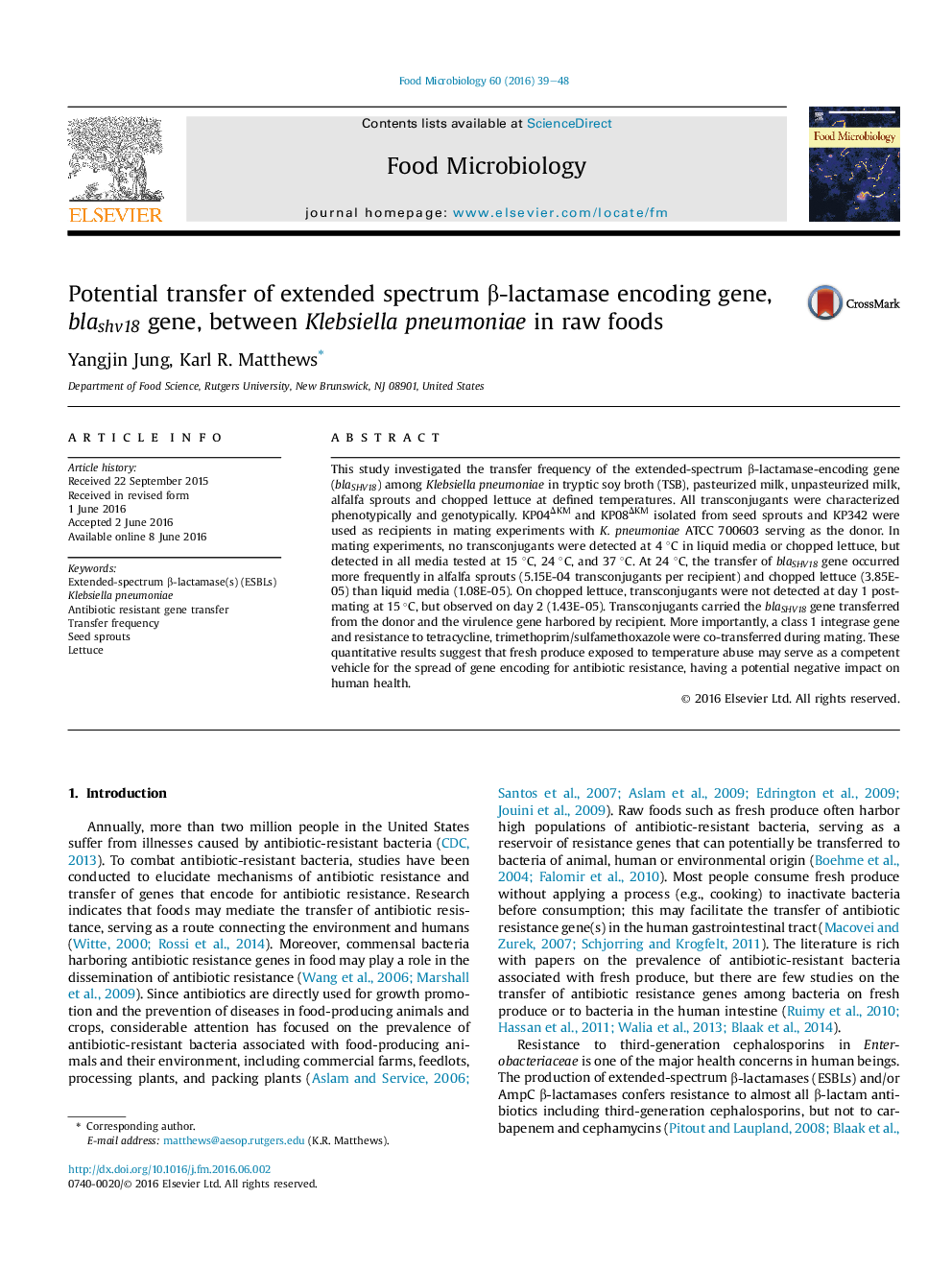| Article ID | Journal | Published Year | Pages | File Type |
|---|---|---|---|---|
| 6288341 | Food Microbiology | 2016 | 10 Pages |
Abstract
This study investigated the transfer frequency of the extended-spectrum β-lactamase-encoding gene (blaSHV18) among Klebsiella pneumoniae in tryptic soy broth (TSB), pasteurized milk, unpasteurized milk, alfalfa sprouts and chopped lettuce at defined temperatures. All transconjugants were characterized phenotypically and genotypically. KP04ÎKM and KP08ÎKM isolated from seed sprouts and KP342 were used as recipients in mating experiments with K. pneumoniae ATCC 700603 serving as the donor. In mating experiments, no transconjugants were detected at 4 °C in liquid media or chopped lettuce, but detected in all media tested at 15 °C, 24 °C, and 37 °C. At 24 °C, the transfer of blaSHV18 gene occurred more frequently in alfalfa sprouts (5.15E-04 transconjugants per recipient) and chopped lettuce (3.85E-05) than liquid media (1.08E-05). On chopped lettuce, transconjugants were not detected at day 1 post-mating at 15 °C, but observed on day 2 (1.43E-05). Transconjugants carried the blaSHV18 gene transferred from the donor and the virulence gene harbored by recipient. More importantly, a class 1 integrase gene and resistance to tetracycline, trimethoprim/sulfamethoxazole were co-transferred during mating. These quantitative results suggest that fresh produce exposed to temperature abuse may serve as a competent vehicle for the spread of gene encoding for antibiotic resistance, having a potential negative impact on human health.
Related Topics
Life Sciences
Agricultural and Biological Sciences
Food Science
Authors
Yangjin Jung, Karl R. Matthews,
